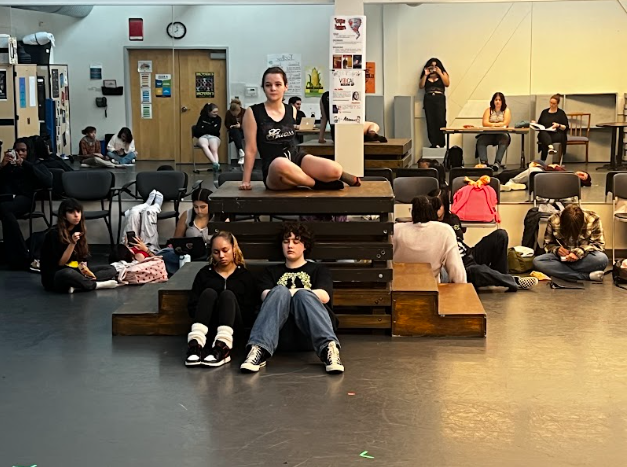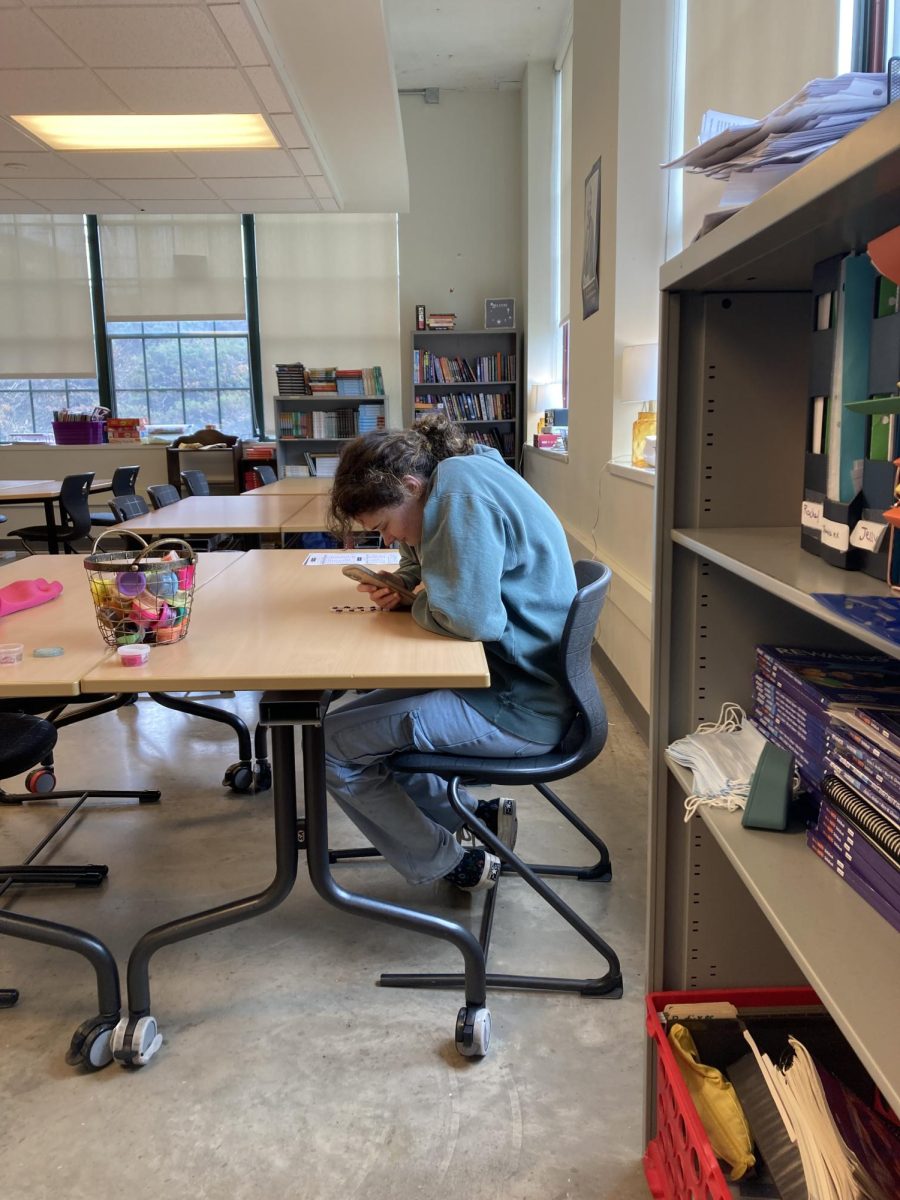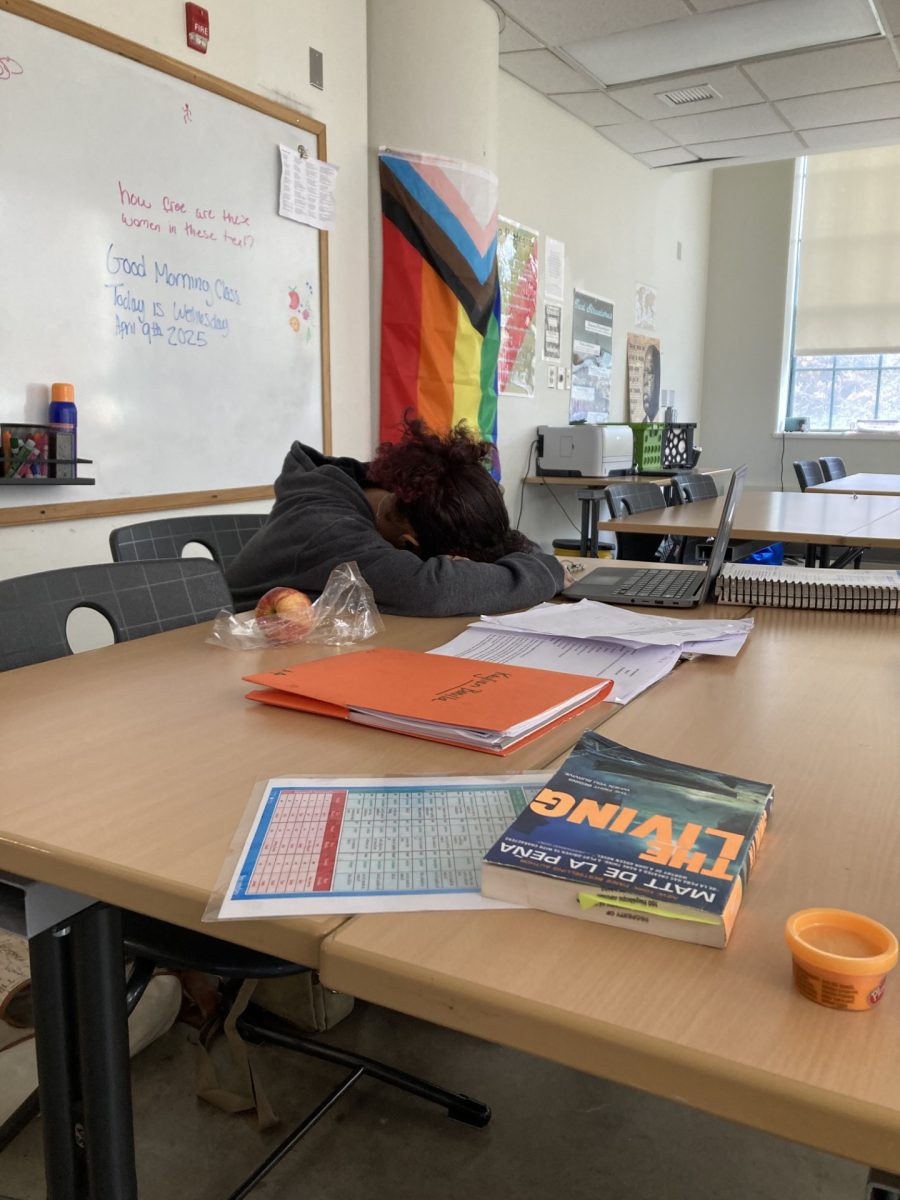Tired– we are tired.
Every day to get ready for school, I wake up around 5:00 considering that I need to leave the house by 6:50. School ends at 2:11, I get home at 2:40, I go to dance by 5:30, and leave at 8. The normal work hours are 9-5. Notice anything weird? Well, I do, I’m awake actively doing things all day with minimal breaks for 15 hours, 8 hours is the normal work day for adults… I am 16 years old; how am I expected to basically work a 15 hour day while I’m supposed to fill my short breaks with studying and homework? That’s a lot of time to be awake, considering the early wake up and the late bedtime, this can’t be healthy, we are teenagers meaning our body is still developing or is it? How much can this lack of sleep affect us teens with growth and other side effects, and how can it impact our performance in school?
While being in high school I’ve naturally acquired other friends that are in high school and we often talk about the struggles that we sometimes share with class. Throughout these conversations a very common topic is the time we eventually end up going to sleep; times such as 11:30pm,12:00am,2:00am and other extremely late hours tend to be so common among teenagers knowing that we have to get up yet so early the next morning to be at school on time, totaling the average amount of sleep that we get is 4-6 hours versus the 8-10 hours that’s advised for teenagers. “I think high school is the real danger spot in terms of sleep deprivation,” said William Dement, MD, PhD, founder of the Stanford Sleep Disorders Clinic, the first of its kind in the world. “It’s a huge problem. What it means is that nobody performs at the level they could perform,” whether it’s in school, on the roadways, on the sports field or in terms of physical and emotional health.” (Richter 6). This quote states that sleep deprivation is the big issue here and seems to affect more school-related things than we may think, such as underperformance in school. This quote is also a good convincing argument as to why school times should start later because it directly addresses that it is proven that the times schools are set to start at currently negatively impact students.
If the school days started at a later time in the morning it would provide a longer nights sleep that will result in improvement in schools;, lack of sleep is one of the main factors in underperforming students due to obvious tiredness but also some serious factors that can explain things such as burnout:,“With a lack of REM sleep, symptoms emerge that can affect your health. It can lead to fatigue, irritability, changes in mood and memory, and issues with cognition and problem-solving.…” (Peter’s 1) This is a clear piece of evidence that lists possible side effects due to a lack of REM sleep. I chose that specific quote from the article because it mentions issues with cognition and problem solving. These are two extremely important factors that you really rely on in school because those are the two main things you need to function. My question is, if there is clear open and public factual evidence that lack of sleep could affect the way we THINK and PROBLEM SOLVE, the two MAIN factors of school, I don’t see as to why we wouldn’t start school later.
Considering this would be a big decision to make all schools start later you would need to think of all the possible perspectives on the decision to assure a positive outcome. A reasonable opposite perspective of mine might claim that if the school days are shortened, evidently classes would be shorter causing students to not have enough learning time in class which could lead to more homework and more homework leading to higher rates of burnout in students. Although this claim could make sense, it’s a bit of a slippery slope. If school times started later students would have more energy for the day, making us more attentive in the class which then allows information to be retained better and an overall improvement in high school education overall. An article by the American Psychological Association also proves against this counterargument with data shown from comparing schools with an earlier start time to schools with a later one. “One meta-analysis found that compared with students whose schools started between 8 a.m. and 8:29 a.m., those in schools starting between 8:30 a.m. and 8:59 a.m. had longer sleep duration, less negative mood, and better developmental outcomes including socioemotional health, cognitive development, behavioral health, and physical health (Pediatrics, Vol. 149, No. 6, 2022). Another review found later start times were correlated with better attendance, less tardiness, less falling asleep in class, better grades, and fewer car crashes” (Wier 7).
Ultimately, after considering this data and proven evidence, the reason for underperformance, lack of attention, tiredness, burnout and negative moods that seem to hurt our education could simply be fixed with the help of some extra hours of sleep and changing school times to start later would be the best solution for such in order to assure improvement in teenagers’ performance and overall physical and mental health.






























